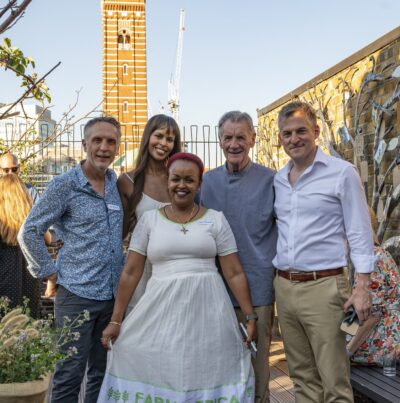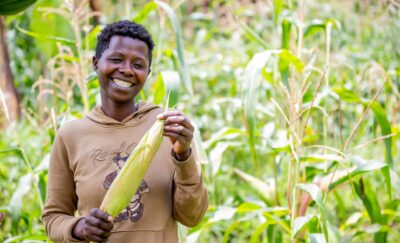Expert view
3 December 2012
Postcard from Doha – Forest Day: It’s the people, stupid

Photo: Forests in Ethiopia’s Bale mountains
By Michelle Winthrop
Sunday provided a welcome break from sitting in on the negotiations, and instead an opportunity to hang out with the good and the great at Forest Day. Some of it was spent manning the booth we shared with our partners who are helping us design REDD+ for Bale Eco-Region – namely IDESAM from Brazil and NCRC from Ghana.
The theme of our booth was how south-south cooperation is the best way to build capacity for good forest governance, and our experience is a great example of that. And I had a chance to catch up with my old DFID boss too, and hear about how they’re trying to reorient forest finance to really address those tricky capacity issues.
A group of legislators from around the world (including UK MP Barry Gardiner) gave some fascinating insights into how laws get passed on forestry, and how the only way to get popular support for those laws is to put the socioeconomic objectives first.
The only sustainable way to protect the trees is to protect the interests of the people who are the custodians of those trees.
Forest conservation
Another big theme was the need to get beyond the exclusive focus on the carbon that is locked into the trees – we can’t sit around forever waiting for carbon markets to get moving, so we’ve got to help people benefit from biodiversity, forest coffee, agroforestry and other benefits the forest can bring.
A great session on finance for REDD+ revealed to me how far we have to go to get a steady stream of finance for protecting forests – we were reminded by the government of Indonesia that human disaster always gets people digging deep, but forests don’t.
And rather depressingly the major private sector investors seem to have lost interest in the business opportunities from REDD+. We’ve a while to go before the money seriously flows.
Gender and climate change
After a quick spot of south-south catching up with the Brazilians and Ghanaians, I was off to another side event on gender and climate change. If there’s one thing this COP has achieved, it’s the proper inclusion of gender issues into the proceedings and the text. (Actually, as of Monday lunchtime, it is sadly the ONLY agreed text).
But an important high-level recognition of something Farm Africa’s always known: women are most affected by climate change, but as major custodians of the natural resource base they are also the most important potential agents of change… At last, a Doha breakthrough to celebrate!
– Michelle is Farm Africa’s country director in Ethiopia. She’s blogging from the UN Climate Change Conference in Doha, Qatar.
Read Michelle’s previous postcards from Doha:




